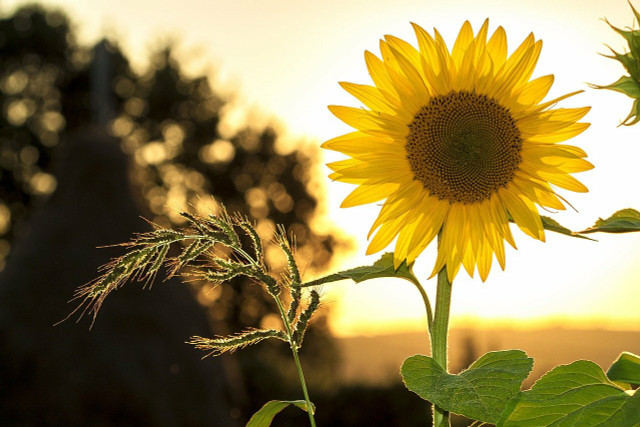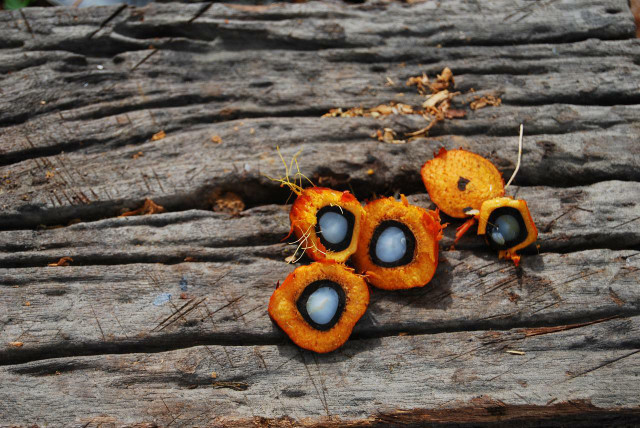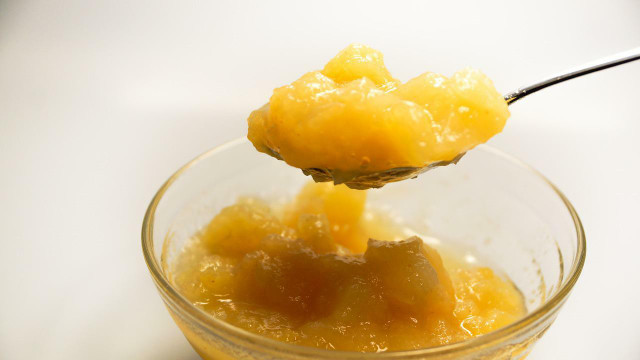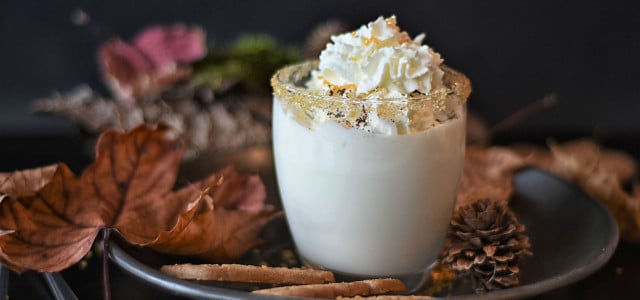Although it is a popular non-dairy swap for butter, margarine isn't always vegan. Read on to learn what to look for ing vegan margarine, and check out our 4 recommended brands.
Margarine was invented in France in 1869 to provide a cheaper butter alternative. Originally made from beef tallow churned with milk, margarine has changed quite a lot since then. Margarine is usually considered to be a plant-based or non-dairy alternative to butter. However, not all kinds of margarine are vegan, as they may contain various additives, flavorings, and ingredients to help mimic the buttery taste of dairy products.
Keep reading to get all the information necessary when making your vegan margarine choices.
What Is Margarine Made Of?

(Foto: CC0 / Pixabay / A_Different_Perspective)
Margarine, or oleomargarine, or simply oleo, is a highly processed food made from vegetable oils, water, and salt. Additional colors, flavors, and other ingredients are often added to improve the taste, texture, color, or nutritional value of the spread. By law, margarine must be at least 80 percent fat, although some brands have circumvented this by calling their product a “(buttery) spread”.
Because vegetable oils are liquid at room temperature, they have to be processed to make them into a block form. This used to be done through a method called hydrogenation. Hydrogenation makes food have a longer shelf life and prevents things from going rancid as quickly, but it also produces artificial trans fats which have been linked to numerous health problems and were therefore banned in 2015.
Margarine these days is more likely to be made through a process called interesterification: essentially, water is added to vegetable oil and the fatty acids are rearranged to make it more solid, and then salt and any other extra ingredients are added to achieve the desired taste and consistency. Vitamin A and D are often added, which of course poses no problems for vegans. However, extra proteins derived from animals are also permitted as ingredients.
Is Margarine Vegan?
Most brands of margarine will be vegan, but many brands use animal-derived ingredients to make the spread taste more buttery or to improve its texture. So long as the additives in margarine are approved by the FDA for consumption, they can be used to make the spread.
If you are looking for vegan margarine, be wary of any that lists one or more of these ingredients:
- Lactose is a type of sugar that naturally occurs in milk and dairy products.
- Casein is the chief protein in milk and is essential to making non-vegan cheese.
- Lecithin is a mixture of fats that are essential to the human body. Although it can be found in a lot of food like vegan-friendly soy, it is also derived from egg yolk.
- Dairy milk, milk powder, buttermilk, or yogurt is sometimes added to enhance the butter-like flavor without the high-fat content. Land-O-Lakes margarine uses yogurt to make the product creamier.
- Animal fat such as tallow or suet. Many people choose margarine as it is lower in saturated fat than dairy butter. Some brands use a mixture of vegetable oil and animal fat to make a ‘healthier’ spread.
- Omega-3 and fish oil. High in polyunsaturated fats and good for heart health, many margarine brands add the oil to improve the nutritional quality. Although omega-3 naturally occurs in hemp seeds and walnuts, you should read the label carefully.
- Vitamin D3. Although vitamin D2 is always vegan, D3 can be made from sheep’s wool.
- Natural flavors. Just because it’s natural, doesn’t mean it’s plant-based.
Many brands will actively tell you if theirs is vegan margarine by labeling the product with the trusty vegan trademark. When in doubt, thoroughly check the ingredients and allergens listed on the packaging.
Are All Vegan Margarines the Same?



(Foto: CC0 / Pixabay / mploscar)
Now that we know what to look out for when buying vegan margarine, the next step is to be aware of the type of vegetable oil that has been used in its manufacturing. But are all vegan margarines the same? Not all vegetable oils have the same nutritional values or health benefits. Nor are they equally sustainable or environmentally friendly. Most vegan margarine will be made from sunflower, safflower, olive, canola, corn, or palm oil. Usually, it will be a blend of two or more of these oils.
To make the most sustainable choice, it is best to choose products that have been made from unrefined, extra-virgin or cold pressed oils. This is because they have been made by using machinery to crush or press the fruit or seed in order to extract the oil. Other methods could make use of solvents or additional chemicals in order to process the oil.
Sunflower oil: Sunflowers are a crop native to the US, and sunflower oil is a good source of vitamin E.
Olive oil: This oil has been linked to such health benefits such as helping to prevent heart disease.
Canola oil: This oil low in saturated fat and high in healthy monounsaturated fat.
Coconut oil: The antioxidants in virgin coconut oil have been linked to health benefits and could have anti-inflammatory properties, and contains healthy cholesterol. Always be sure to buy organic, fair trade, virgin coconut oil to be the most environmentally friendly in your consumption.
Palm oil: Although free from harmful trans fats is typically produced on large monoculture plantations in Southeast Asia. Huge amounts of deforestation occur for the production of palm oil, which impacts biodiversity and ecosystems. In the rainforest, land for cultivation is being cleared at alarming rates. Apart from avoiding the consumption of palm oil, there other things you can do to prevent deforestation.
Why & How to Avoid Palm Oil



(Foto: CC0 / Pixabay / Orientierungslust)
Palm oil is so widely used around the world because oil palm is a very efficient and high-yielding crop. However, irresponsible production of palm oil causes deforestation, increasing carbon dioxide emissions which in turn exacerbates the climate emergency. Deforestation has an impact on many aspects of the environment, including the destruction of habitats for wildlife such as Orangutans.
It is best to avoid products that make use of palm oil, but considering it makes its way into around fifty percent of products we use and consume, this can be somewhat challenging. Always opt for brands that are certified by the Roundtable on Sustainable Palm Oil, or RSPO. The RSPO is not an eco-label, but it does seek to improve aspects of palm oil production, such as sustainability, banning the use of child labor, and restrictions on slash-and-burn practices. The restrictions were tightened in 2018 after the RSPO was criticized for a number of shortfalls including not having high enough standards and the fact that getting the certification can be difficult for smallholders and producers.
So, although the RSPO certification is not perfect, it is currently the most important certification for the production of palm oil. According to the company, 19.5 percent of the world’s palm oil is currently certified.
Alternatives to Vegan Margarine



(Foto: CC0 / Pixabay / Taken)
No matter what vegan margarine you choose, and what type of oil it contains, all plant-based spreads have a significantly lower climate impact than butter. But with the pitfalls surrounding the pros and cons of certain types of oil and manufacturers, you may want to look for an alternative to margarine. Depending on the intended use, there are many substitutes to vegan margarine that will give delicious results, and are more sustainable and less processed.
Why not try one of these instead?
- For cooking and frying, an organic, fair trade sunflower oil would be a good and sustainable option.
- If you like a buttery spread on your toast, why not choose avocado? Full of healthy unsaturated fats, eating avocado has many health benefits, including that it could help lower your cholesterol. Although avocado does have its cons when it comes to the environment, locally grown and organic produce — or even homegrown avocado — will be more sustainable than imported vegan butter made from palm oil.
- Why not try a homemade whole-seed or nut vegan pesto? Whole seeds contain more fiber than the oil oil extracted from seeds.
- For baking, you can use mashed banana and whole-nut butter such as homemade peanut butter or DIY unsweetened apple sauce. Most bananas are grown overseas, and many are in mono-cultures that use pesticides. We recommend buying organic and eating in moderation.
Some of these are at the same time great vegan substitutes for butter.
Brands We Recommend
Whole food alternatives to butter are great, but sometimes only vegan butter will do. Luckily, with more people using dairy alternatives, it is easier than ever to source vegan margarine and butter. We recommend these vegan margarine brands as they make use of organic ingredients, and, when used, the palm oil is RSPO certified. All of these recommendations are available in stores across the country or are available to order online.
- Earth Balance Organic Coconut Spread — Great for baking, spreading, or cooking, available on earthbalancenatural.com.
- Wild Brine Dairy-Free Oat-Butter Alternative — Non-GMO and made with a blend of sunflower oil, coconut oil, and oat milk, available on wildbrine.com.
- Miyokos Creamery — Has a range of cultured, organic, and palm-oil-free vegan butters. They are also committed to sustainable sourcing of ingredients. Salted, unsalted, or flavored, all vegan butter needs are covered! In stores, on miyokos.com or from Amazon**.
- Country Crock — Have a range of plant-based buttery spreads and vegan margarine to choose from. They use a blend of oils including RSPO palm oil. Available on countrycrock.com.
Read more:
- Avocado Oil for Baking: Pros and Cons
- Vegan Honey Alternatives: 4 Plant-Based Substitutes
- 6 Pine Nut Substitutes for Pesto, Salads, and More
Do you like this post?









